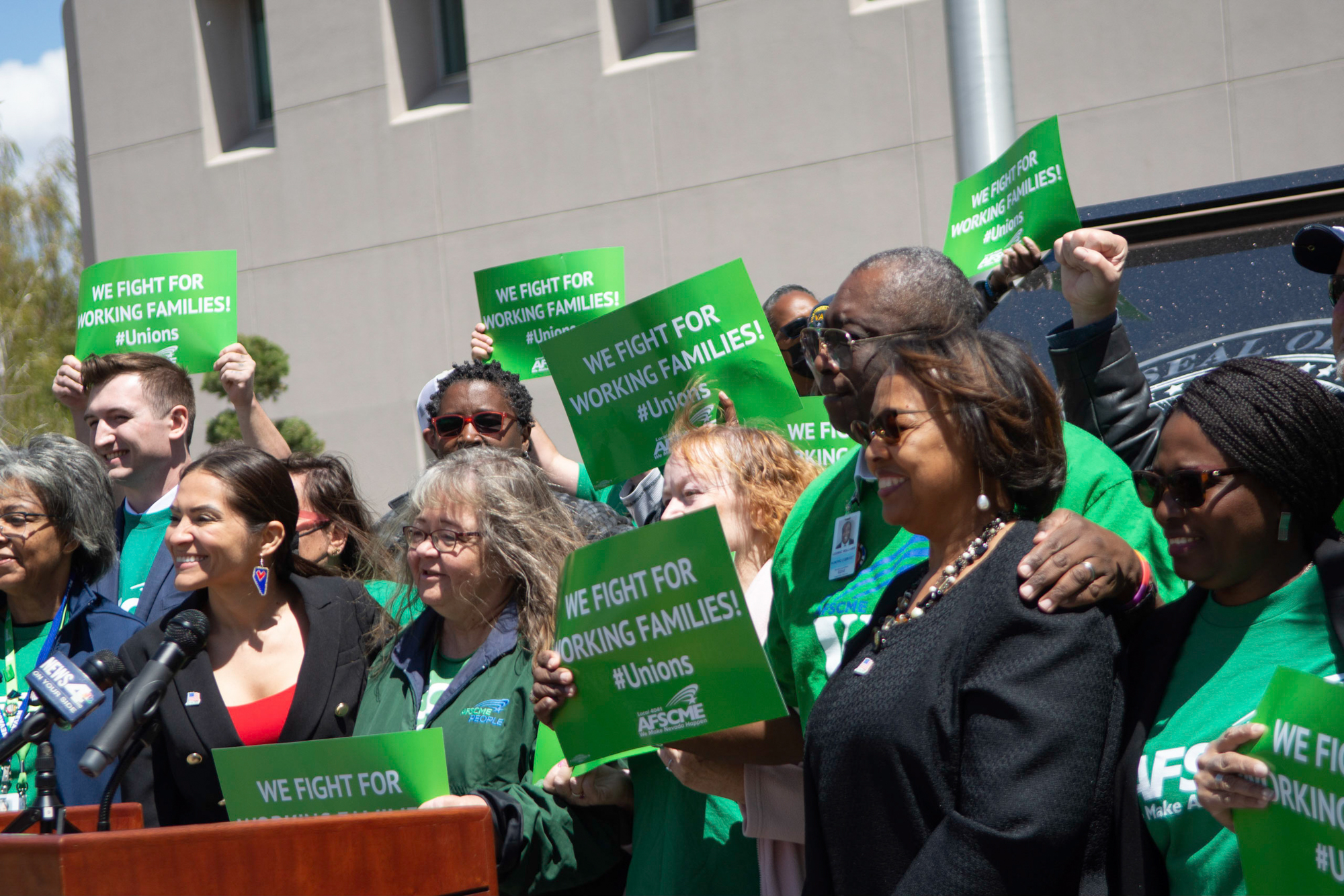One of the largest state employee unions in Nevada announced Friday it intends to take legal action against the state over a move this week to exclude certain state employees from a recently revived retention pay program, a decision they allege violates state law.
The American Federation of State, County and Municipal Employees (AFSCME) Local 4041 alleged in a Friday statement that the plan from Gov. Joe Lombardo’s administration would “unlawfully” exclude thousands of state workers from longevity pay, an incentive program designed to boost salaries for some of the state’s longest tenured employees.
That’s because a memo issued this week by the state Department of Administration limits eligibility for longevity pay only to unclassified employees and employees not in a bargaining unit covered under a collective bargaining agreement (CBA).
The union now seeks to compel the Lombardo administration to apply longevity pay to all state employees, though a formal legal filing is not expected to be made in Carson City District Court until Monday.
The move from AFSCME — which represents more than 17,000 state workers in Nevada across four bargaining units, including maintenance, custodial, engineers, scientists and certain office and health care workers — marks the second time this year that the union has sparred with Lombardo in the wake of the 2023 legislative session.
In September, AFSCME took legal action against Lombardo over his veto of a bill, SB440, that would have funded a $25 million arbitration award from 2021 that was resolved after that year’s legislative session. The case is still pending.
Authorized as part of AB522 — also known as the state worker pay bill, one of the state’s five major budget bills — the longevity pay program would boost pay for state workers with eight or more years of continuous service. The move functionally reboots a program axed by lawmakers in 2015.
The push to reinstate longevity pay came as one of many individual policies aimed at boosting state employee compensation — including historic cost-of-living adjustment raises and additional one-time retention bonuses — that came amid soaring vacancy rates across state government.
The specifics of those policies, however, became a point of friction between Lombardo and legislative Democrats, who frequently clashed over what kind of new incentives should have been included in the final budget.
A spokesperson for Lombardo’s office declined a request for comment.
Correction: Nov. 3, 2023 at 3:20 p.m. — An earlier version of this story misstated the eligibility for longevity pay applying only to unclassified employees and employees covered by a collective bargaining agreement (CBA). Instead, the eligibility applies to those employees not covered by a CBA.

